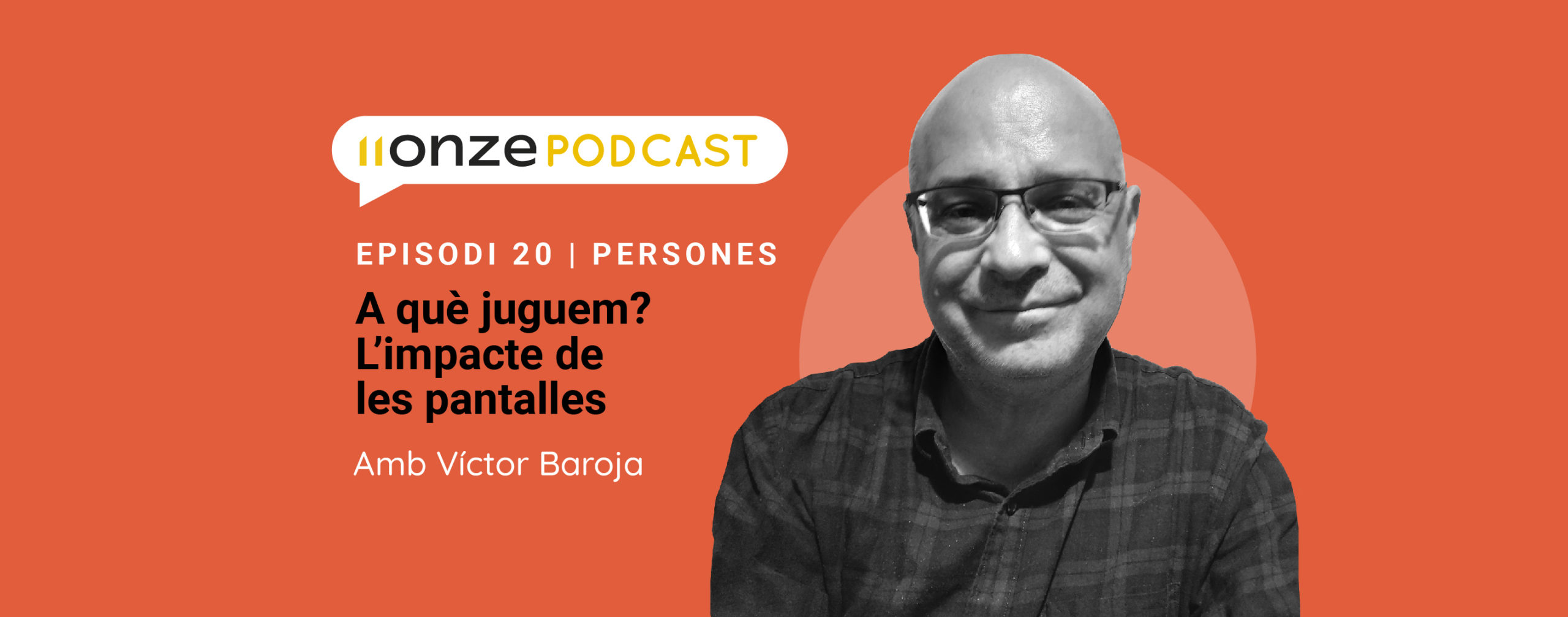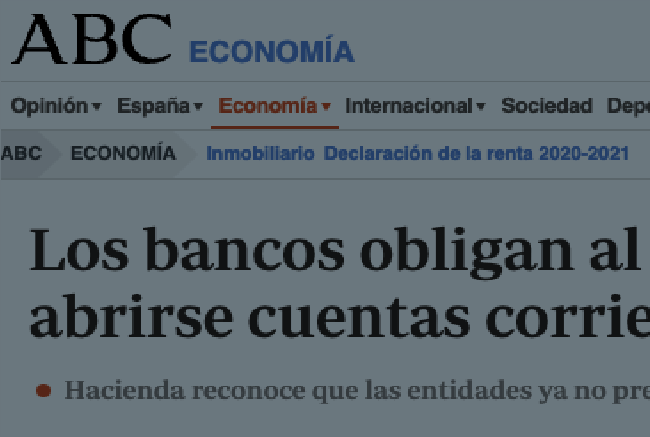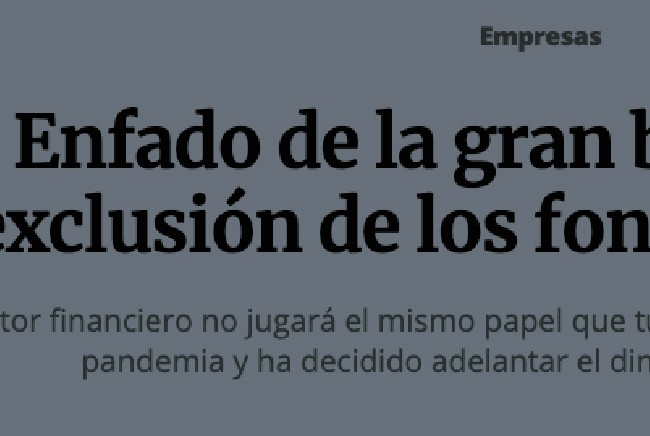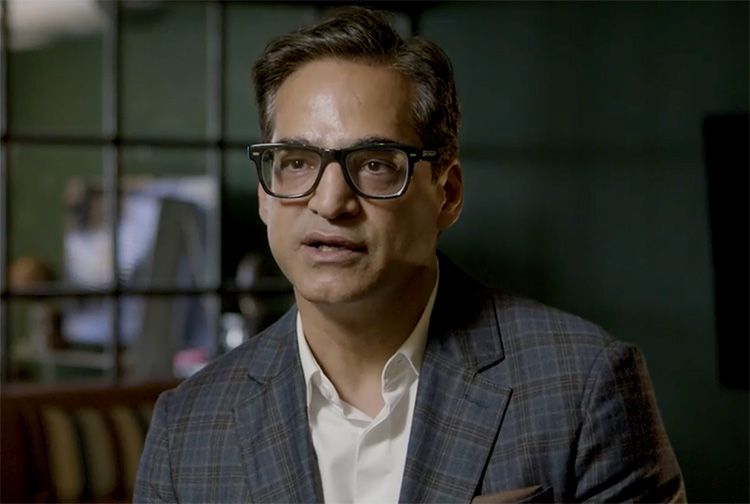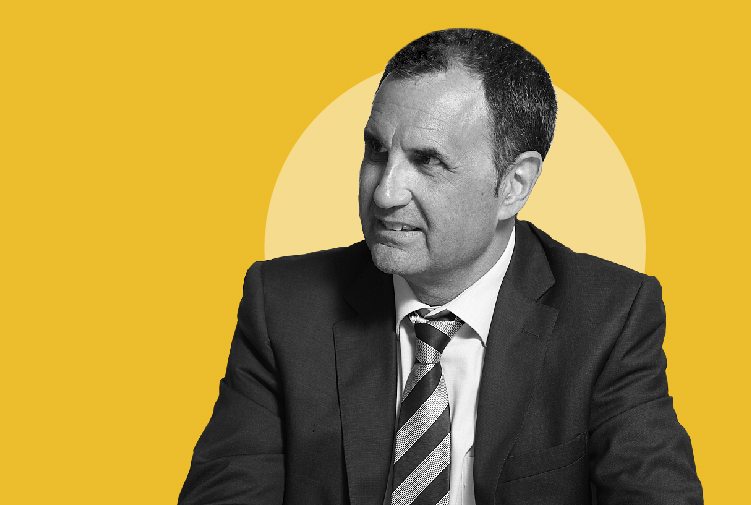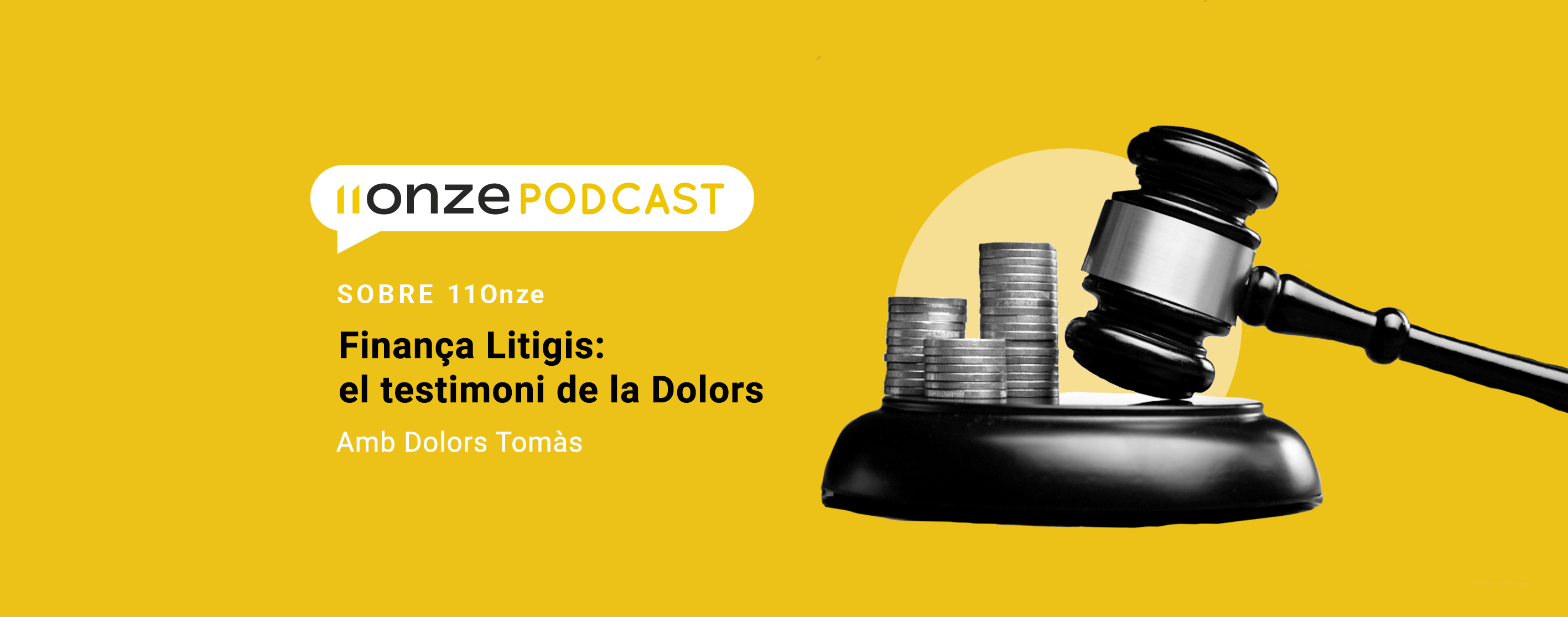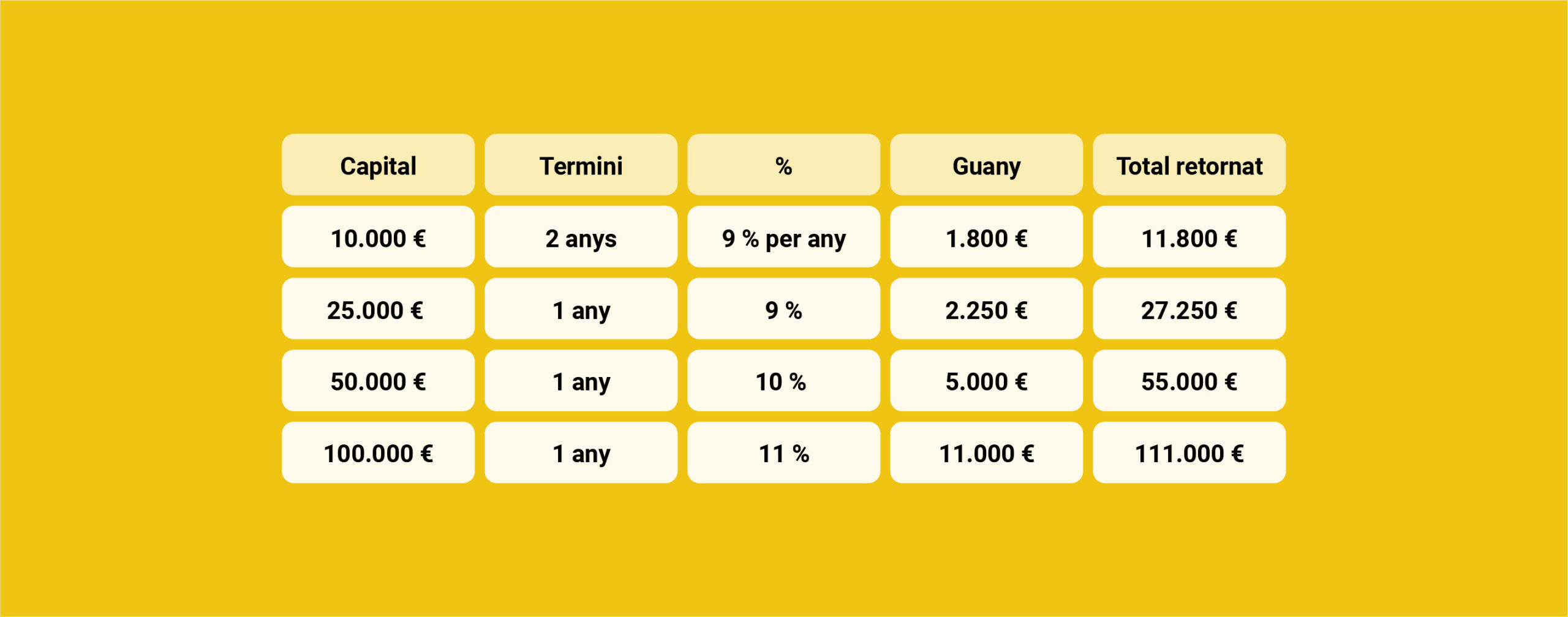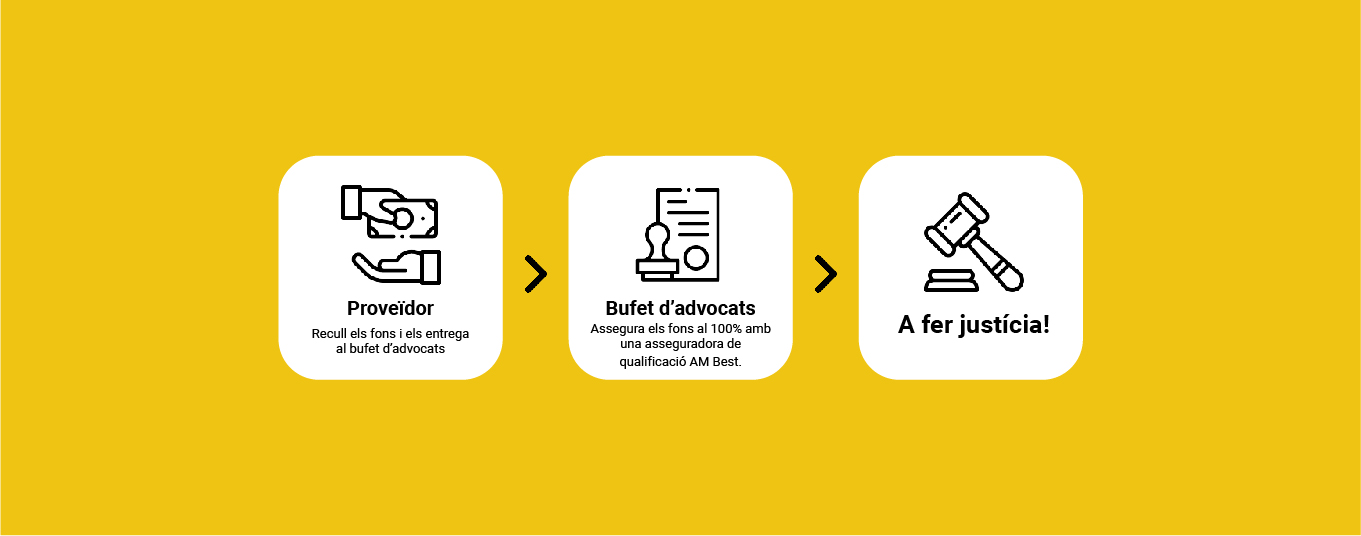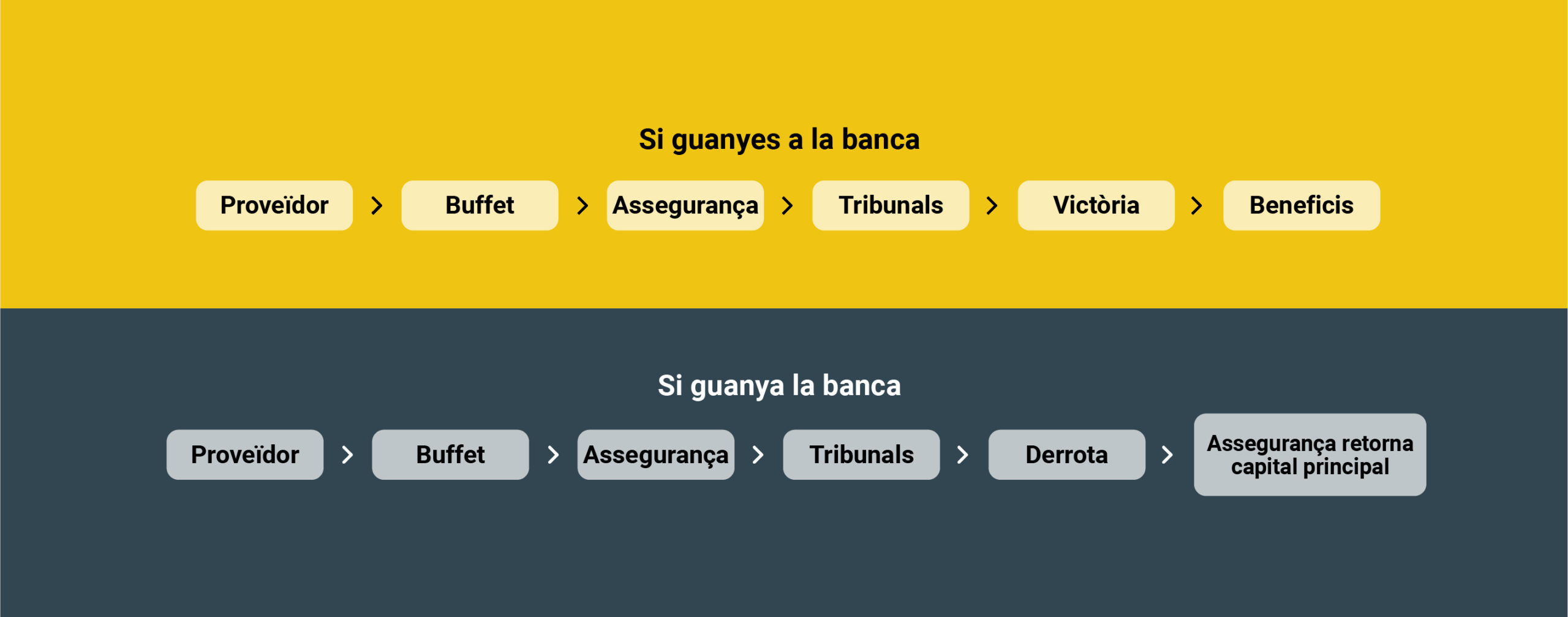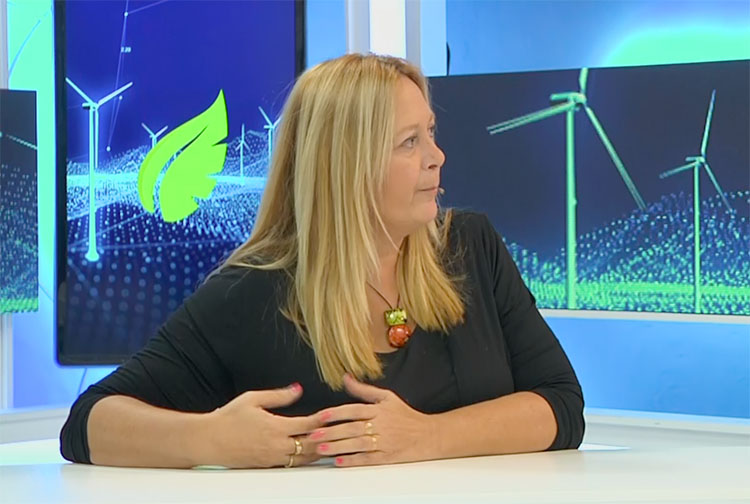How have screens changed the way we play?
Have we forgotten to play? No. We have always played and we continue to do so, no matter how old we are. But society has changed, and now we play different things. We talked to Víctor Baroja, president of the Catalan Federation of Traditional Games and Sports, about it.
With the frenetic pace of life, have we forgotten to play? Not at all, according to Víctor Baroja: “I don’t know any child or young person who doesn’t play,” he says. Mankind has always used games as a way of relating to each other. Now we continue to do so, but in different ways. Many of the games we play today are just improved versions of those played by our ancestors.
Of course, we cannot ignore the irruption of technology in our lives. The time we used to spend gathering in squares to play with friends in the open air or enjoy board games has been affected by the simplicity and agility of screens.
Even so, can we say that screens have stolen our play time? The screen is still an instrument that has changed us on a sociological scale,” says the president of the Catalan Federation of Traditional Games and Sports. And he continues: “Our life is compartmentalised into spaces that are like bubbles, and what has happened with screens is that all our bubbles are connected with a simple click, we can go from scheduling a work meeting to playing Paraulògic in a matter of seconds.”
Vestiges of the past
Although screens, used well, are not a bad thing, “what they can never replace is the face to face, going down to a town square, the sense of touch and being surrounded by the typical sounds of community games, such as the sound of a domino hitting the table,” explains Baroja.
Not only the sounds, but also the smell of the game board when we open it to take out the pieces or the traditions surrounding the traditional games… All these are intangibles that are part of our heritage. Victor calls it the “playful memory,” which connects us with the historical past, with the generations that have preceded us, and “is the piece that makes the traditional games unique.”
The soundtrack of our games
“Sonos Ludum” is the name of the project created by the federation in order to treasure the characteristic sounds produced during traditional games: the jumping rope, the dominoes, the impact of bowling, etc.
The project aims to stimulate our sensitivity through the sounds that, despite having changed over time, continue to transport us to a point in space-time, both distant and near, where the game brings us closer together as social beings. Our desire to gather around a table to share this time of leisure and fun is still latent.
11Onze is the community fintech of Catalonia. Open an account by downloading the super app El Canut for Android or iOS and join the revolution!
The bailout of the Spanish banking system required the injection of more than 100 billion euros, which did not help the economy to take off. Was another formula possible? The truth is that Iceland emerged stronger from the great financial crisis it experienced between 2007 and 2009.
These days mark the tenth anniversary of the Spanish government’s decision to take control of Bankia, at that time the fourth-largest financial institution in Spain. It did so by converting a loan of almost 4.5 billion euros into shares. The entity ended up merging with CaixaBank in 2020, or being absorbed by the latter, depending on how you want to see it.
“There is no cost to Spanish taxpayers,” said Luis de Guindos, the economy minister, during the days of the intervention. However, what in principle was not going to cost the state has ended up with a capital injection of more than 22,000 million euros, although it may end up recovering part of it one day.
Bankia is one more in the list of financial institutions bailed out by the Spanish state in the wake of the 2008 financial crisis, which also led to the intervention of Caja de Ahorros del Mediterraneo, Banco de Valencia, CatalunyaCaixa, NovaCaixaGalicia, Unnim, Caja de Ahorros de Castilla-La Mancha, Cajasur, Banco Mare Nostrum, Banco CEISS, Banco Gallego, Banca Cívica, Grupo Cajatres, Liberbank and Caja Rural Mota del Cuervo.
In total, the Tribunal de Cuentas has quantified the resources allocated to the restructuring of these institutions, which have ended up being absorbed by the large Spanish banks, at more than 122 billion. The Fondo de Reestructuración Ordenada Bancaria (FROB) committed more than 77 billion euros; the Fondo de Garantía de Depósitos, more than 35 billion, and the Bank of Spain, almost 10 billion.
Money difficult to recover
The European Central Bank acknowledged in a 2015 report that the capital injections to banks were made in such a way that the repayment of public money was unfeasible.
In reality, it was a kind of gift of billions to the banking lobby. Many securities were acquired for more than their real value, and it was clear that a significant part of the assets transferred to the Sociedad de Gestión de Activos Procedentes de la Reestructuración Bancaria (Sareb) would generate huge losses for the State. According to estimates by the Bank of Spain, the financial rescue will end up costing the taxpayer a minimum of 60.6 billion euros.
Is such a public outlay justifiable? After the experience of the Great Depression in the United States following the crash of 1929, in which the collapse of the financial sector had a devastating effect on the rest of the economy, many experts have defended the advisability of bailing out banks too big to fail to avoid an economic collapse.
The argument is that taxpayers are less burdened by the bailout than by the consequences of the recession. However, not all countries have followed the academic orthodoxy.
The Icelandic way
In 2000 Iceland was a country of 300,000 people with a GDP of less than 10 billion euros. But in a few years its banking sector hypertrophied thanks to succulent interest rates that attracted large amounts of deposits from other countries.
The boom of its financial institutions made the country take off, more than doubling its GDP between 2001 and 2007. Credit flowed into the island like manna, and the Icelandic króna soared on the foreign exchange market.
However, the collapse of Lehman Brothers in September 2008 burst the Icelandic bubble. Within days, the island’s three main financial institutions (Glitnir, Landsbanki and Kaupthing) went into receivership.
Instead of injecting billions into these private banks, Iceland let them collapse and created new entities to manage the wreckage. After multiple protests, the resignation of a government and several referendums, the country decided to safeguard Icelanders’ deposits and refused to take over the huge amount of foreign deposits.
Admittedly, this did not come at no cost to taxpayers, as Iceland spent 20% of GDP on cleaning up the sector, according to OECD. But the economy bounced back strongly in the following years. After a fall of almost 40% between 2007 and 2009, GDP rebounded again and in 2017 was already above pre-crisis levels. By contrast, Spain has never recovered the 2008 figures.
11Onze is the community fintech of Catalonia. Open an account by downloading the app El Canut for Android or iOS and join the revolution!
Gold prices are poised for their biggest weekly dip since 8 December because of de-escalating geopolitical tensions and little prospect of an immediate Fed rate cut. Is this just a temporary correction after a long period of record highs?
Although it has recovered slightly this Friday for the second day in a row to 2,182 euros per ounce, gold looks set for its biggest weekly loss in value since 8 December 2023. This downward correction has been driven by lower demand for safe-haven assets as tensions in the Middle East between Iran and Israel have eased.
Historical precedent has taught us that gold price rises or falls in the face of geopolitical tensions or the outbreak of armed conflict often respond to the perceived risk of stock markets and governments.
On the other hand, investors do not expect the Fed to cut interest rates in June and July this year, which suggests that we are not facing a possible economic slowdown that historically tends to boost demand for the golden metal.
Also, a delay in the US central bank’s interest rate cuts compared to central banks of other G7 economies favours the performance of US assets with low-interest rates, such as Treasury bonds, to the detriment of assets that do not generate fixed returns, such as precious metals.
Bullish forecasts for 2024 remain unchanged
The price of gold has risen by 25% since the outbreak of the latest armed conflict in Palestine and by 15% so far this year. These figures have contributed to the golden metal’s meteoric rise over the last five years, which has appreciated by 80%.
The temporary fluctuations or corrections in the price of gold experienced over the last two weeks after this long period of record highs should not affect forecasts that its value will remain high throughout the year.
The increasing de-dollarisation process of countries seeking to shield their economies from Western sanctions, continued gold buying by central banks in emerging economies, volatile geopolitical tensions in the Middle East and uncertainty over a possible escalation of the war in Ukraine have solidified gold’s popularity as a safe-haven asset. In addition, gold could be boosted by the various presidential elections taking place this year, especially the US elections in November, where another victory for Donald Trump is not ruled out.
Preciosos 11Onze makes it easy to buy gold, at the best price and with total security. Give us a call and speak to one of our agents without any obligation to clarify any doubts you may have and protect yourself from economic crises with the ultimate safe-haven asset: gold. If you want your savings to keep or increase their value, Gold Patrimony.
The opening commission clause charged by banks when we ask for a loan can be considered abusive if certain transparency requirements are not met. Several courts have ruled on their nullity as they consider that they do not correspond to any effective service provided by the bank.
On 16 March, the Court of Justice of the European Union overturned the approach of Spanish jurisprudence and opened the door to the opening commission of a loan or mortgage being considered an unfair term. The CJEU ruling establishes that the opening fee for a loan or mortgage does not constitute a part of the main object of the contract, having an “ancillary” nature and, therefore, can be an unfair fee.
The European court was responding to the case between CaixaBank and a customer after a court forced the bank to return 845 euros that it had charged him as the opening commission on a mortgage-backed loan, considering this fee to be abusive.
After unsuccessfully pursuing the matter, CaixaBank decided to take the case to the Supreme Court, which asked the CJEU to rule on a specific Spanish law, which considers that the opening commission regulates an essential element of the contract and cannot be considered abusive if it is drafted in a clear and comprehensible manner.
Even so, for the CJEU it is a non-essential obligation of the contract, or in other words, it considers that it is an invention of the bank in order to make money, which does not really obey any specific service or expense differentiated from the activity of the loan itself.
On the nullity of the opening commission
Firstly, it should be borne in mind that an opening commission will not always be declared abusive. The nullity of this fee will be determined after investigating whether the bank duly accredited, prior to the signing of the contract, that it carried out a risk study of both the client and the financial operation, and once the judge has assessed whether there is a significant imbalance between the rights and obligations of the two parties, evaluating whether the client was informed in a clear and comprehensible manner.
That said, to date, several courts have already ruled that some of these commissions are null and void, considering that they do not correspond to any service provided or justified expenses, and forced banks to refund the amount of these fees plus interest since the initial fee was paid. Therefore, banks could face a new wave of legal claims, as happened after the European court also overturned the “ground clauses” and the IAJD.
In the event that you consider that the opening commission for your mortgage may be abusive, you can complain directly to the customer service department of your bank to demand that they refund the fee you have been charged. On the other hand, you can contact a legal advisor to contract the services of a lawyer who can advise you on your particular case and defend your rights.
Fund lawsuits against banks. Do justice and get returns on your savings above inflation thanks to the compensation the banks will have to pay. All the information about Litigation Funding can be found at 11Onze Recommends.
The 1980s on Wall Street was a decade of big personalities, big bonuses and a culture of excess that was accompanied by a meteoric rise in drug trafficking. The pressing need to launder large amounts of drug money led to collaboration between banks and criminal organisations.
To the banks and drug cartels, Bob Musella was a wealthy American businessman dressed in Armani who owned a chain of jewellery stores and ran an investment company from Miami. What they didn’t know was that he was Robert Mazur, an undercover DEA (Drug Enforcement Administration) agent who would eventually bring down drug lords and corrupt banks in one of the most successful anti-money laundering operations of all time.
“Miami is the crossroads of the international drug trade and this is where I did a lot of my business,” said Robert Mazur. With the help of two informants connected to a New York Mafia family and another based in Medellín, Colombia, Mazur mounted the most sophisticated undercover anti-money laundering operation ever conducted.
The evidence he gathered from this operation, known as C-Chase, was key for the US Senate Foreign Relations Subcommittee, led at the time by Senator John Kerry, to legitimise the closure of the Bank of Credit and Commerce International (BCCI), controlled by the Pakistani, Agha Hasan Abedi, which was dedicated to laundering money for the Medellín Cartel, led by Pablo Escobar.
The BCCI and the Medellín Cartel
To launder all this drug money, a series of companies were created with the help of some banking institutions, including BCCI. It was the seventh-largest private bank in the world, its reserves exceeded 20 billion dollars, and it had offices in 78 countries, including Spain.
According to US Customs documents, BCCI agents in Panama knew that the money came from drug trafficking by Colombian drug lords. They contacted Musella in December 1987 to suggest ways of laundering the money in several meetings in Miami, Paris, and London.
Law enforcement and investigative authorities nicknamed it the “International Bank of Thieves and Criminals” because of its penchant for serving customers who trafficked in guns, drugs and dirty money. Initially, the bank denied the charges, arguing it was a “malicious campaign” against the institution.
However, US and UK investigating authorities found that BCCI had been “deliberately set up to avoid centralised regulatory review, and operated extensively in secrecy jurisdictions”, adding that “its executives were sophisticated international bankers, the apparent aim of whom was to keep their affairs secret, commit large-scale fraud and avoid detection”. The entity was forced to cease all operations and shut down its business.
Fund lawsuits against banks. Get justice and returns on your savings above inflation thanks to the compensation the banks will have to pay. All the information about Litigation Funding can be found at 11Onze Recommends.
The Quantum Financial System (QFS) will introduce a new decentralised system of cross-border interbank payments based on a digital currency underpinned by physical assets such as gold.
While the world of financial services is constantly evolving, the Quantum Financial System (QFS) has the potential to revolutionise a banking sector that is often constrained by legacy systems that are overstretched by the need to adapt to the possibilities offered by new technologies.
Before delving into the role of gold within the QFS, it is important to understand that it is a new technological development that would use quantum computing and cryptography through a blockchain platform which would allow for secure and fast transactions without the need for intermediaries such as banks and financial institutions.
One of the main advantages of QFS is its ability to prevent fraud and money laundering, which are significant concerns in today’s financial system. This would be achieved through the use of advanced encryption and authentication technologies that would ensure the immutability of data, preventing manipulation and guaranteeing the integrity of transactions.
In addition, a quantum financial system would be particularly useful in applications where algorithms are fed by real-time data streams, facilitating the transfer of information and enabling near-instantaneous financial transactions, which customers could see immediately updated on their digital platforms.
The role of gold in the QFS
One of the ways in which the QFS could revolutionise the financial sector is through the creation of a digital currency backed by physical assets. This would not be a cryptocurrency but a digital currency that could be backed by physical gold, which would guarantee its value and stability. Thus, only gold-backed coins with a digital gold certificate would be able to participate in the transactions of a QFS.
The printing and pouring of large amounts of money into the economy through increasingly unsustainable fiscal deficits are damaging the credibility of the global fiat currency system and deteriorating government finances. It is therefore not surprising that economic uncertainty and loss of confidence in fiat currencies incentivise a return to fiat currencies backed by safe-haven assets such as precious metals.
In this context, gold is likely to play an increasingly important role in supporting currencies and transactions, a monetary system in which the value of currencies is underpinned by their convertibility into gold. The example of the QFS is not unique; Zimbabwe is about to introduce a gold-backed legal tender digital currency in order to help stabilise the economy in the face of the rapidly depreciating Zimbabwean dollar. A trend that some analysts see as an unmistakable sign of a paradigm shift in the international monetary system.
If you want to discover the best option to protect your savings, enter Preciosos 11Onze. We will help you buy at the best price the safe-haven asset par excellence: physical gold.
The members of our community who invested in Litigation Funding a year ago have already obtained their returns of between 9% and 11%. How was the process? Would they recommend it? Dolors Tomàs, a client of 11Onze, tells us about her experience.
It is just over a year since 11Onze Recommends launched Litigation Funding through one of our providers in the United Kingdom, offering the possibility of obtaining returns of between 9 and 11% for your money by financing the legal costs of law firms that pursue claims from citizens who were misled by banks or housing authorities.
With the capital 100% insured and a success rate on more than 90% of the litigations, the launch of this product has been a great success. But it’s one thing for us to tell you about it and another for our customers to tell you about their experience. Dolors Tomàs, a member of the 11Onze community, has invested because she trusts us and is satisfied with the results.
Social justice and high returns
For 11Onze, it is key to find feasible ways to offer socially conscious wealth creation opportunities for its community. Litigation Funding by 11Onze Recommends promises a good investment option. As James Sène, President of 11Onze explained: “Our litigation funds focus primarily on lawsuits against banks. This not only helps to deliver social justice; it also offers high returns above inflation thanks to the compensation the banks will have to pay”.

“If I found myself misled by a bank, I would not mind paying a high fee to lawyers to get justice done.”
This concept of doing social justice was one of the main reasons why Dolors decided to put her money towards Litigation Funding: “I saw that it was something that appealed to me and that was necessary. As a customer, I wouldn’t mind paying a high fee to lawyers to get a return if I was a victim of bank fraud.”

“It has worked very well. Litigation progress has been consistent through the initial formal steps by the law firm and to the point where most cases are being settled.”
How has Litigation Funding generated these profits?
Litigation Funding generates profits by funding the legal work of a law firm that focuses on lawsuits against the most delinquent municipalities and banks. As Farhaan Mir, 11Onze’s CFO, explains, “It has worked very well. The progress of litigation has been consistent through the initial formal steps by the law firm and to the point where most cases are being settled.”

“The capital is guaranteed by insurance, meaning that if the judicial process does not go as expected, and you don’t win the trial, you can get your money back”.
Dolors confirms that “everything has worked out very well” and adds that one of the reasons why she lost her fear of investing is that “the capital is guaranteed by insurance, meaning that iif the judicial process does not go as expected and you don’t win the trial, you can get your money back”. That is why 11Onze recommends this product, which is considered a unique and low-risk opportunity.
Fund lawsuits against banks. Get justice and returns on your savings above inflation thanks to the compensation the banks will have to pay. All the information about Litigation Funding can be found at 11Onze Recommends.
The public employment offer approved this year by the Catalan Government and the Spanish Government exceeds 60,000 vacancies. We offer ten tips to prepare for a civil service examination with guarantees in case you are thinking of it.
Given the instability of the labour market, you may be thinking about preparing for a civil servant competitive examination. It is undoubtedly a good time to do so, given the large public employment offer announced by both the Catalan and the Spanish governments.
If you decide to take the plunge, the first thing you need to be clear about is which option best suits your interests, your profile and your skills. Also, be aware that you will need a certain spirit of sacrifice to put in the hours of study every day, you will have to be constant and never lose motivation.
Júlia Pérez, director of the Adams training academies in Catalonia, shares ten fundamental tips for preparing for civil service examinations with guaranteed success.
- Keep the objective in mind. To stay motivated, you must never lose sight of the goal for which you are striving.
- Time management. Be clear about how much time you have to study. The more hours a day you can dedicate, the better. But, in any case, it is necessary to make a realistic plan to see how many months it will take to prepare for the exams.
- Studying the right way. We must bear in mind that studying does not mean spending hours in front of a book. It is essential to find ways to make the most of your time.
- Enjoying the study. We must try to have fun while we study so that so many hours do not turn into hell.
- Organisation. We must be very organised because we will spend many hours alone in front of books, notes and questionnaires.
- Support. Furthermore, we need to feel that our environment, both family and friends, support and help us.
- Train, train and train. This is a long-distance race, so it is a good idea to do a lot of exam practice.
- Keep negative thoughts under control. We are bound to have them, so we must try to control them. In this sense, the first point helps a lot: having a clear objective and always keeping it in our mind.
- Better in company. We must be in good company. That’s why it helps a lot to have teachers and other candidates help us not to feel so lonely.
- Taking care of yourself. You have to take good care of yourself, both body and mind, and never stop believing that you can achieve your goal. In fact, many people achieve it every year, so why shouldn’t you be one of them?
At 11Onze we have been announcing for some time that the price of gold will continue to rise and that it is a great tool for protecting our savings. That is why we launched 11Onze Preciosos in February 2022 and, since then, we have been reporting on the gold market regularly. Now the forecasts are confirmed, gold continues to break records and the mainstream media is also talking about it.
TV3 explains how many establishments that buy and sell gold are doubling or tripling their operations by accepting old gold jewellery as part of payment. In this way, they are helping to counteract the rise in gold prices.
Gold at an all-time high: resale of antique jewellery is on the rise and lower-carat pieces are being bought.
“According to analysts, the gold rush still has a way to go. Speculative investment is growing, as is the interest of individuals in buying gold on the Internet. Even some American supermarkets, such as the Costco chain, already sell gold bars, with a variety of prices to suit all budgets”.
La Vanguardia reports how the armed conflicts in Ukraine and Palestine have spurred gold purchases by the central banks of Russia, China and Turkey and have pushed the price of the golden metal to record highs.
Gold has risen 25% since the Hamas attacks and hits an all-time high
“If time is money, gold is living one of its best times. The yellow metal has been hitting record highs for several days in a row. After new consecutive monthly gains, it is close to 2,300 dollars an ounce, a figure never seen before”.
El Periódico echoes the new all-time high in the price of gold and notes that analysts attribute the price rise to the possibility of lower interest rates and the continuation of purchases by central banks.
Gold returns to all-time highs and nears $2,300 per ounce
“The precious metal continues its bullish rally of the last few days: the price of the golden metal is up 0.40% this Wednesday and is up 10.60% this year and 12.50% in the last twelve months, according to Bloomberg data.”
On Economia, the economic daily of El Nacional, notes that the boom in this precious metal on international markets has caused the Bank of Spain’s gold reserves to increase in value by 33% since October.
The gold rally makes the Bank of Spain ‘win’ 5,080 million in 6 months
“Price rises that have allowed the Spanish central bank’s gold reserves to gain 5,080 million euros since October, 33%, which, annualised, has yielded 65%.”
Ara analyses the reasons behind gold’s meteoric rise over the last five years, in which it has appreciated by 80%, and by 10% in the last month alone.
The new gold rush: strong central bank demand drives up the price of the precious metal
“The situation of economic uncertainty, with the strong inflation of recent years and the expectation of a rate cut, also boosts the price of gold. “Having gold protects you from inflation because it maintains a certain stability. Therefore, the more uncertainty, the more the price of gold rises,” Casanovas points out.
If you want to discover the best option to protect your savings, enter Preciosos 11Onze. We will help you buy at the best price the safe-haven asset par excellence: physical gold.
In recent years, the belief that our poor email management is highly harmful to the environment has spread out. The latest research relativises its impact and points to other digital habits as responsible for a significant part of global warming.
The book ‘How Bad Are Bananas? The Carbon Footprint of Everything’, published in 2010, popularised the idea that emails have a large carbon footprint. Its author estimated that each message, even if it is just to reply “thank you”, generates a minimum of 0.3 grams of CO₂ due to the energy consumption associated with our devices and, above all, with large data centres. And it should be borne in mind that between 150 billion and 300 billion emails are sent daily around the world, although most of them are ‘spam’.
Some recent research relativises this alleged environmental damage of our messages. Apart from freeing up some space on the servers that host them, there is no evidence that it substantially reduces the energy consumption of the digital infrastructure if we avoid our expendable emails and delete unnecessary ones.
We very rarely switch on a mobile phone or computer just to send an email and both storage and data transmission systems run relentlessly, even when we are not using them, so energy consumption remains fairly stable.
An updated perspective
With the new estimates, it is estimated that heating water in a kettle requires more electricity than sending and storing a thousand e-mails. And deleting that thousand messages from our inbox would have a carbon benefit of about five grams of CO₂, the minimum our computer would generate in half an hour if we kept it on to delete them. Although it may be hard to comprehend, manually deleting emails can have a greater impact on carbon emissions than storing them.
In fact, the first effective measure to limit the carbon footprint of email is to reduce as much as possible the number of electronic devices we buy to manage it and to keep them as long as possible, as their manufacture generates a significant carbon footprint.
But above all, safeguarding the environment means using energy-efficient devices and rationalising the time we keep them switched on: we should not forget that part of the electricity we use to power these devices comes from fossil fuels.
The source of excessive traffic
Obviously, avoiding unnecessary emails, writing concisely, including hyperlinks to files rather than attachments, limiting the number of recipients, regularly emptying the ‘spam’ folder and unsubscribing from newsletters that do not really interest us are best practices that will reduce Internet traffic. But if we really want to contribute with our digital habits to the good health of the planet, we should look beyond our e-mail.
Email exchanges account for only 1% of Internet traffic, which is tiny compared to video streaming services, which already account for more than 80% of what goes online. And that is an appreciable amount of tons of CO₂.
If you want to wash your clothes without polluting the planet, 11Onze Recommends Natulim.
